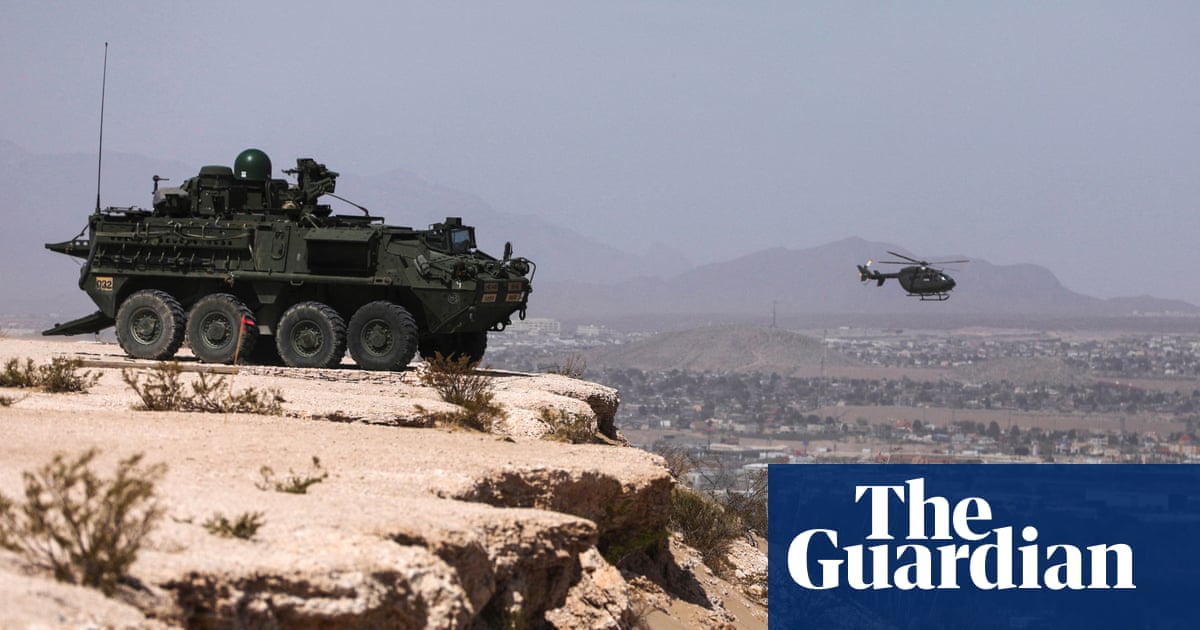what does the increasing militarization of the US-Mexico border mean for the future of immigration,trade,and international relations? This article dives deep into the trends and implications of border militarization,examining the impact of heightened security measures on human rights,economic stability,and diplomatic ties. Explore the evolving landscape of US-Mexico border security and discover what these changes could mean for communities on both sides.
The Militarization of the US-Mexico Border: Future Trends and Implications
The recent authorization of military control over federal lands along the US-Mexico border signals a notable shift in immigration enforcement.This move, driven by concerns over border security and illegal immigration, has far-reaching implications for the future.Let’s delve into the potential trends and what they mean for the United States and its neighbors.
Increased Military Presence and Border Security
The most immediate trend is a heightened military presence along the border. this includes the deployment of troops, the construction of barriers, and the installation of surveillance technology. The goal is to deter illegal crossings and disrupt the activities of drug cartels. This approach,however,raises questions about the role of the military in domestic law enforcement and the potential for increased tensions with Mexico.
Real-life example: We can expect to see more drones, surveillance towers, and possibly even autonomous systems deployed along the border. this mirrors trends seen in other regions with significant border security concerns.
impact on Immigration and human Rights
The militarization of the border could lead to stricter enforcement of immigration laws, potentially resulting in more detentions and deportations. This raises concerns about human rights, particularly for asylum seekers and vulnerable populations. The increased presence of military personnel could also lead to more encounters between border patrol agents and migrants, potentially escalating conflicts.
Did you no? The Posse comitatus Act generally prohibits the use of the U.S. military for domestic law enforcement purposes. However,there are exceptions,and the current order appears to be navigating those exceptions.
The militarization of the border can have significant economic and social consequences. Increased security measures can disrupt cross-border trade and tourism, impacting local economies. Additionally, the perception of a militarized border can create a climate of fear and mistrust, affecting community relations and social cohesion.
Pro tip: Businesses and communities near the border should prepare for potential disruptions and develop strategies to mitigate the negative impacts of increased security measures.
Evolving Technology and Surveillance
The future of border security will likely involve advanced technologies, including artificial intelligence, facial recognition, and refined surveillance systems.These technologies can enhance the ability to monitor and control the border, but they also raise privacy concerns and the potential for misuse.
Case study: The use of drones for border surveillance has already increased significantly. as technology advances, we can expect to see more sophisticated and autonomous systems deployed.
International Relations and Diplomacy
The militarization of the border can strain relations with Mexico and other countries. It is crucial to maintain open lines of communication and cooperation to address shared challenges, such as drug trafficking and human smuggling. A unilateral approach to border security can undermine these efforts and create diplomatic tensions.
Reader question: How can the U.S. balance border security with the need for positive relations with its neighbors?
The future of Border Security: A Complex Landscape
The trends discussed above paint a complex picture of the future of border security. While the goal is to enhance security and control illegal immigration, the potential consequences for human rights, economic stability, and international relations are significant. It is indeed essential to consider all aspects of this issue and to develop extensive strategies that address the root causes of migration while respecting human rights and promoting cooperation.
What are your thoughts on the militarization of the border? Share your comments and insights below.

